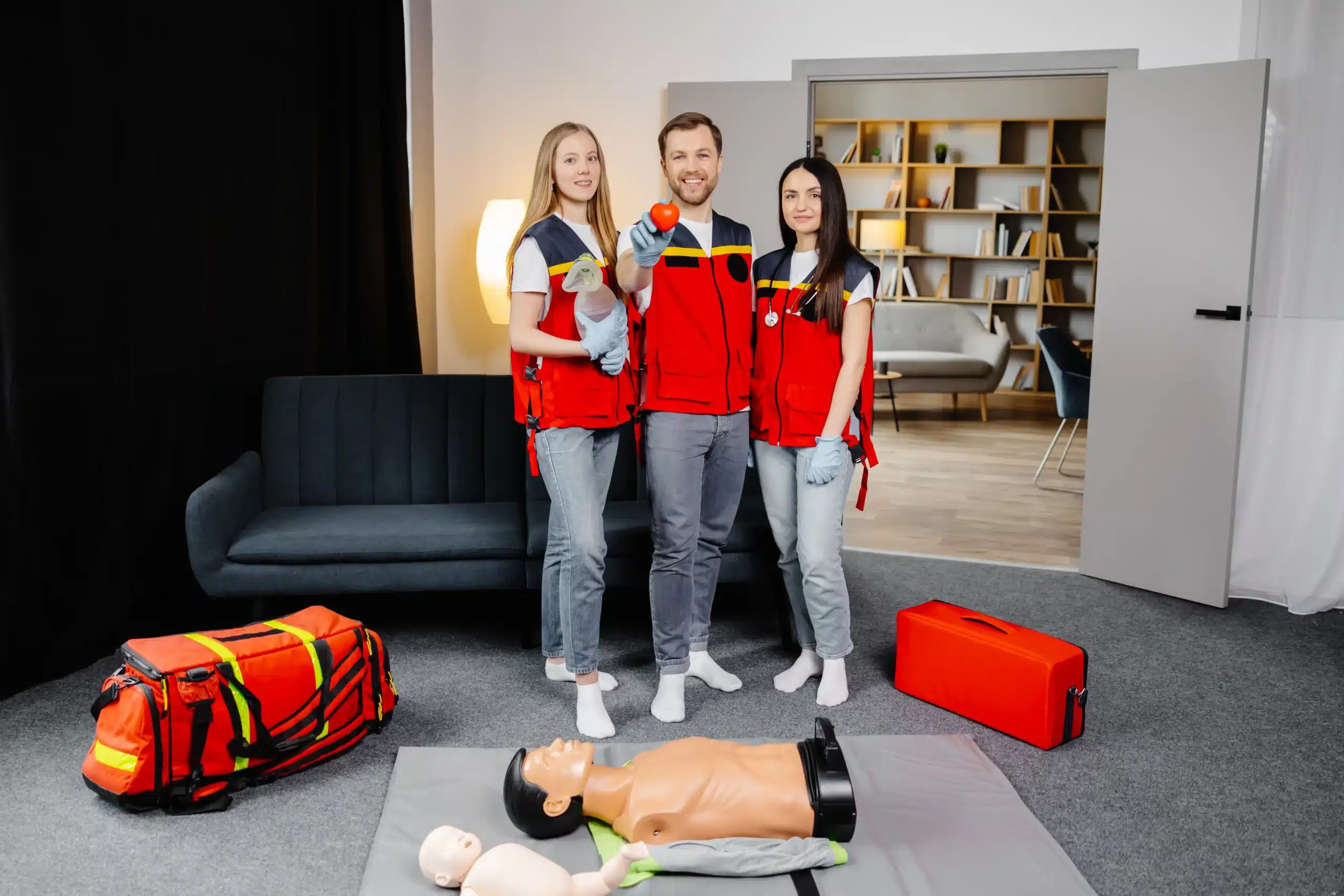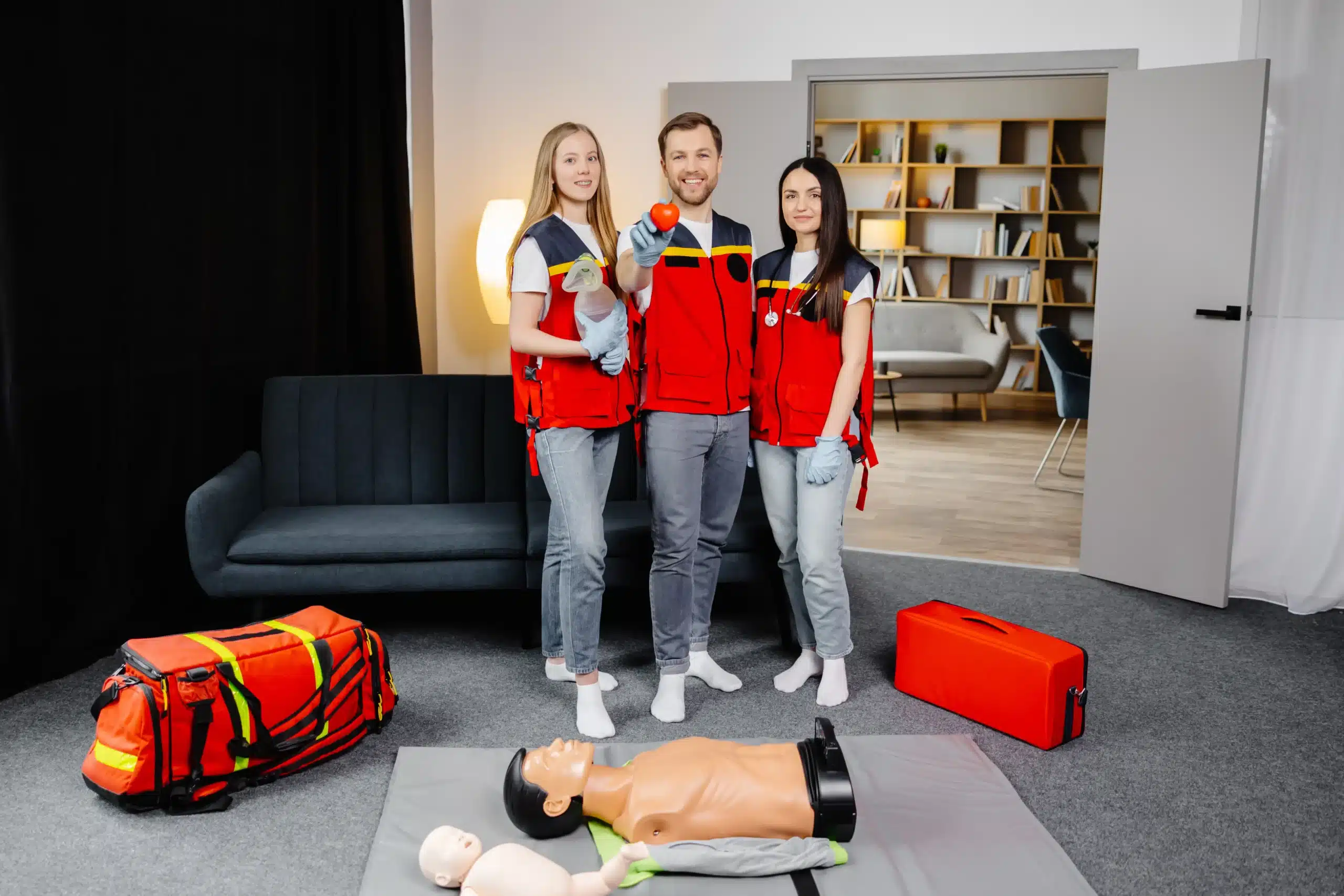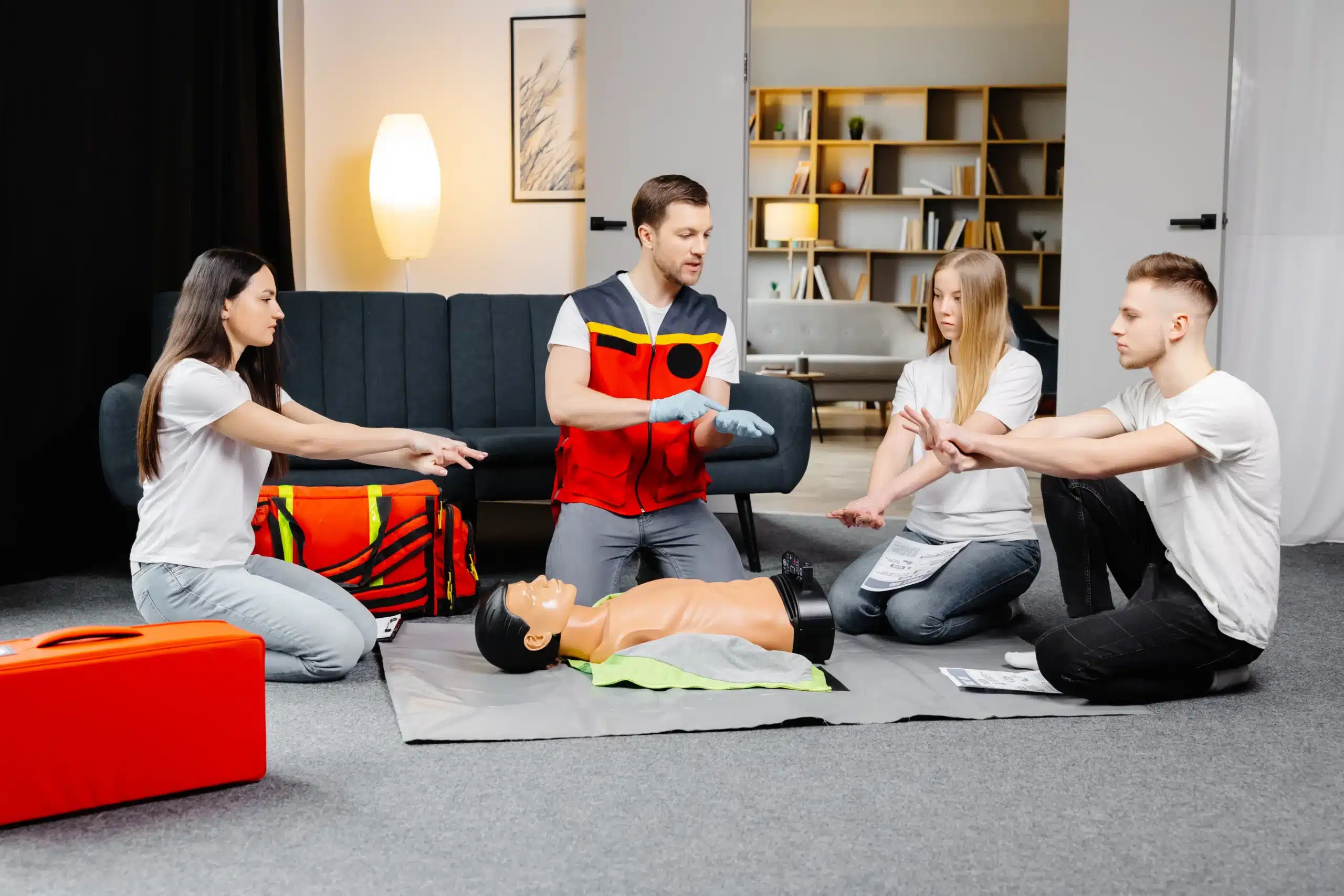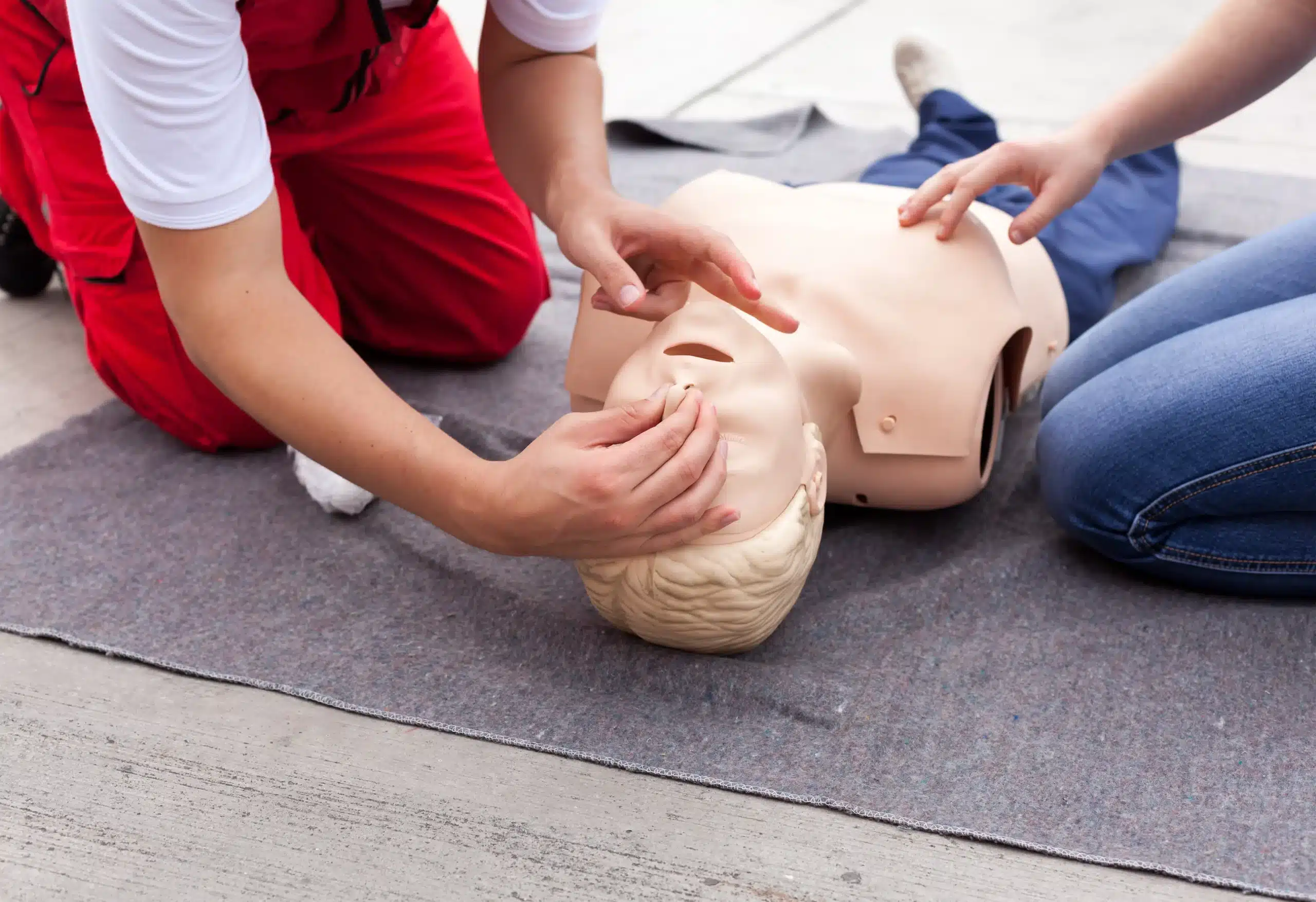Accidents can happen anytime, anywhere. Being prepared is key, and knowing first-aid in Napa can give you the confidence to respond effectively in a medical emergency. This guide provides a practical overview of first-aid training options in Napa, covering everything from basic life support to specialized certifications. We’ll discuss the importance of certified training, explore the different types of courses available, and provide resources for finding reputable training providers in the area. Get ready to learn valuable skills that can make a real difference in your community.
Key Takeaways
- Be prepared for emergencies with first aid training: Learning essential skills like CPR and wound care empowers you to confidently handle various medical situations until help arrives.
- Napa residents have accessible and affordable training options: Local providers offer a range of courses, from basic first aid to specialized certifications, to fit your specific needs and budget.
- Getting certified is easy and convenient: With flexible schedules and online registration, you can quickly gain valuable life-saving skills and contribute to a safer community.
What is First Aid Training in Napa?
First aid training equips you with the skills to handle medical emergencies until professional help arrives. In Napa, these courses cover a range of life-saving techniques, from treating minor injuries to managing serious conditions like heart attacks and strokes. It’s about being prepared and confident to respond effectively in a crisis.
What First Aid Courses Cover
First aid courses in Napa, like those offered by Safety Training Seminars, typically follow guidelines set by nationally recognized organizations like the American Heart Association (AHA). These courses cover essential skills such as CPR, using an AED, controlling bleeding, managing shock, and treating common injuries like burns and fractures. They’re designed for various audiences, from healthcare providers needing certifications like BLS to everyday people wanting to learn basic life support. Specialized courses also address specific needs, such as childcare first aid.
Why Certified Training Matters
A certification from a reputable organization like the AHA demonstrates you’ve received standardized, high-quality training and possess the skills to respond effectively in an emergency. These certifications are often valid for two years, giving you ample time to practice and refresh your knowledge. A first aid certification can be a valuable asset in many workplaces and community settings, showing you’re prepared to handle unexpected situations and contribute to a safer environment.
Common First Aid Myths
Unfortunately, many misconceptions about first aid exist. Some believe you should put butter on a burn, which can worsen the injury. Another myth is that tilting your head back stops a nosebleed; this can cause blood to flow down the throat. Quality first aid training dispels these myths and provides evidence-based practices to ensure you provide safe and effective care. Learning the facts can make all the difference in a critical situation.
Top First Aid Course Providers in Napa
Finding the right first aid training program is an important first step. Here are a few reputable providers in the Napa area offering a variety of courses to fit your needs:
Safety Training Seminars
Safety Training Seminars offers a comprehensive selection of certification courses, including CPR, BLS, ACLS, PALS, and First Aid. They’re known for their practical, hands-on training and convenient Napa location, making them a great option for local residents. Explore their course offerings to find the right fit for you.
Napa CPR Training Center
Affiliated with Napa Valley College, the Napa CPR Training Center is an American Heart Association (AHA) certified training center. They offer various CPR and First Aid courses designed for both individuals and organizations, equipping participants with essential life-saving skills.
Bay Area CPR
Bay Area CPR provides a range of AHA-certified CPR and First Aid classes at competitive prices. Their courses include BLS, ACLS, PALS, and standard First Aid training. They’re committed to providing high-quality education so participants feel prepared for emergency situations.
Adams Safety Training
Adams Safety Training focuses on First Aid training for infants, children, and adults, plus Adult CPR/AED training. Their courses, typically around four hours long, aim to equip participants with practical skills and knowledge for effective emergency response.
Essential First Aid Skills for Napa Residents
Knowing basic first aid can make a real difference in an emergency. Whether you’re a healthcare professional, a parent, or just someone who wants to be prepared, having these skills can help you respond effectively until professional help arrives. This section covers some essential first aid skills relevant to Napa residents.
Learn CPR and How to Use an AED
CPR (cardiopulmonary resuscitation) can help someone who has stopped breathing or has sudden cardiac arrest. Learning how to perform CPR and use an AED (automated external defibrillator) is crucial. These devices are often found in public places and can significantly increase the chances of survival. An informational CPR training can be surprisingly affordable. Safety Training Seminars offers comprehensive CPR training and certification right here in Napa.
Treat Wounds and Control Bleeding
Knowing how to clean and dress a wound is a fundamental first aid skill. Proper wound care can minimize the risk of infection and promote faster healing. It’s important to learn how to control bleeding effectively to prevent further complications. A first aid certification course will teach you these essential techniques.
Manage Heat-Related Illnesses
Napa’s warm summers can pose a risk for heat-related illnesses like heat exhaustion and heat stroke. Knowing how to recognize the symptoms and provide appropriate first aid is vital. This might include moving the person to a cool place, providing fluids, and monitoring their condition. First aid courses in Napa often cover these topics, making them particularly relevant for residents.
Treat Allergic Reactions and Anaphylaxis
Allergic reactions can range from mild to severe. Understanding how to identify and respond to an allergic reaction, especially a severe one like anaphylaxis, can be life-saving. This includes knowing when to administer an epinephrine auto-injector (like an EpiPen) if available. Safety Training Seminars offers training in these areas, equipping you with the knowledge to handle such situations.
Handle Choking and Shock
Choking is a common emergency, and knowing how to perform the Heimlich maneuver can save a life. Similarly, understanding the signs and symptoms of shock and how to provide first aid while waiting for professional medical help is essential. CPR classes often cover these critical skills, giving you the confidence to act in these emergencies.
Benefits of First Aid Training
Knowing how to respond to a medical emergency can make all the difference. First aid training empowers you with the skills and confidence to act quickly and effectively when it matters most. But the advantages extend beyond the individual. Let’s explore some key benefits of becoming first aid certified.
Prepare Yourself and Build Confidence
First aid training equips you with practical skills to handle a range of medical situations, from minor cuts and burns to more serious incidents like choking or cardiac arrest. This knowledge translates into a sense of preparedness and self-assurance, allowing you to react calmly and decisively under pressure. When you know what to do, you’re less likely to freeze up or feel helpless during an emergency. This confidence can be invaluable, not just for yourself, but for those around you. Check out our First Aid training to get started.
Strengthen Your Community’s Safety
First aid training doesn’t just benefit you personally; it strengthens your entire community. When more people are trained, the chances of someone being able to provide immediate assistance during an emergency increase dramatically. This creates a safer environment for everyone, from neighbors and coworkers to friends and family. Consider taking a group CPR class with friends or colleagues to build camaraderie and contribute to a more resilient community.
Enhance Workplace Safety
First aid training is a valuable asset in any workplace. It can significantly reduce the severity of workplace accidents and create a safer environment for employees. Having trained first aiders on-site can mean faster response times in emergencies, potentially minimizing the impact of injuries and promoting a culture of safety. For businesses in Napa, consider CPR training to improve workplace safety.
Promote Health Awareness
First aid training goes beyond simply learning how to treat injuries; it promotes a greater awareness of health and safety issues. Through training, you’ll gain a deeper understanding of potential hazards and how to prevent them. This knowledge can empower you to make informed decisions about your own health and well-being, as well as the safety of those around you. Explore our available First Aid classes to learn more.
Find the Right First Aid Course
So, you’re ready to learn first aid? Great! Finding the right course in Napa is easier than you think. This section breaks down the types of courses available, typical costs, and ways to save.
Available Course Types
Napa offers a variety of first aid courses tailored to different needs. Whether you’re a healthcare professional maintaining your certifications, a parent wanting to be prepared for emergencies at home, or simply someone wanting to learn valuable life skills, there’s a course for you. Safety Training Seminars, for example, offers American Heart Association-certified courses in CPR, BLS, ACLS, PALS, and standard First Aid. They also offer specialized courses like the EMSA Child Care Health and Safety program and RQI classes. This range of options ensures you can find training that aligns with your specific goals.
Course Costs & Affordability
First aid training is an investment in yourself and your community, and thankfully, it doesn’t have to break the bank. Costs vary depending on the type and length of the course. Basic CPR and AED training can cost around $35 per person for a two-hour course. For a more comprehensive CPR and First Aid certification, including online learning and skills testing, expect to pay around $140. You can learn more about CPR and First Aid certification costs on the Napa CPR Classes website.
Discounts and Group Rates
Looking to train a team or group of friends? Many providers offer discounts for group classes, making it a cost-effective way to get certified. Safety Training Seminars offers group discounts and can even come to your workplace or school to conduct training, making scheduling a breeze. Some providers also offer military discounts, so be sure to ask about potential savings.
Register for a First Aid Course
Ready to learn life-saving skills? Registering for a first aid course in Napa is straightforward. Here’s what you need to know:
Enroll Online
Signing up for a class is easy. Visit the Safety Training Seminars online enrollment system to browse available courses and select a date and time that works for you. You can view the schedule and complete your registration in minutes.
Flexible Course Schedules
We understand busy schedules. That’s why Safety Training Seminars offers classes daily from 8 am to 10 pm. This flexibility makes it easier to fit training into your life, whether you’re a working professional, a student, or a busy parent.
What to Expect in Training
Safety Training Seminars offers a variety of course formats. Choose from in-person, instructor-led training or blended learning, which combines online coursework with hands-on practice. For blended learning courses, like BLS, ACLS, or PALS, you’ll complete the online portion before attending the in-person skills session. This typically takes one to two hours for BLS and three to four hours for ACLS or PALS. Check the schedule and choose the format that suits your learning style.
Certification and Renewal
Upon successful completion of your course, you’ll receive an American Heart Association (AHA) certification card the same day. These AHA certifications are recognized worldwide and are valid for two years.
Community Events and Partnerships
Safety Training Seminars is committed to community safety. We offer group discounts and can even bring the training to you. Whether you’re a business or a school, we can conduct on-site CPR and first aid training at your location on any day of the week. Contact us to discuss your organization’s training needs.
Related Articles
- First Aid Classes Napa: Your Complete Guide – Napa CPR Classes
- First Aid in American Canyon: A Guide to Certification
- CPR & First Aid Training in Napa: Your Guide – Napa CPR Classes
- CPR & First-aid Classes in Napa, CA – Napa CPR Classes
Frequently Asked Questions
What’s the difference between CPR and First Aid training?
CPR focuses specifically on life-saving techniques for someone who has stopped breathing or has a sudden cardiac arrest. First Aid training is broader, covering a wider range of medical emergencies, from minor injuries like cuts and burns to more serious situations like choking or allergic reactions. Often, CPR is included as part of a comprehensive First Aid course.
How long does a First Aid certification last, and how do I renew it?
Most First Aid certifications, including those from the American Heart Association, are valid for two years. To renew, you’ll need to retake the course before your current certification expires. This ensures your skills and knowledge are up-to-date.
What if I have a busy schedule? Are there flexible class options?
Yes, many training providers understand that people have busy lives. They offer various class times, including evenings and weekends, to accommodate different schedules. Some providers also offer blended learning options, combining online coursework with shorter in-person skills sessions.
Are there First Aid courses specifically designed for childcare providers or healthcare professionals?
Absolutely. Specialized courses cater to specific needs. For example, childcare providers can take courses focusing on infant and child CPR and First Aid, while healthcare professionals can take advanced courses like BLS, ACLS, and PALS to maintain their required certifications.
Why should I choose a certified First Aid course over a non-certified one?
A certified course, particularly one from a recognized organization like the American Heart Association, ensures you’re receiving standardized, high-quality training based on the latest medical guidelines. Certification also demonstrates to employers and others that you possess the necessary skills to respond effectively in an emergency.






